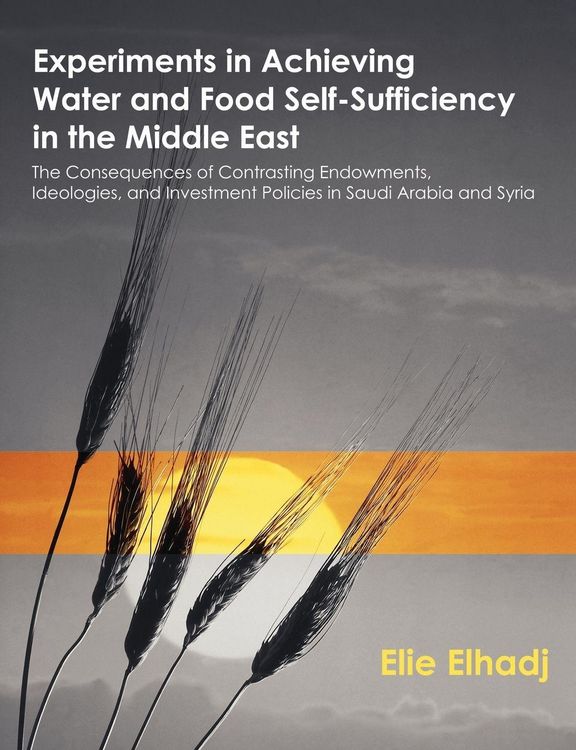
Experiments in Achieving Water and Food Self-Sufficiency in the Middle East The Consequences of Contrasting Endowments, Ideologies, and Investment Policies in Saudi Arabia and Syria
-
- Englisch ausgewählt
35,99 €
inkl. MwSt,
Lieferung nach Hause
Beschreibung
Details
Einband
Taschenbuch
Erscheinungsdatum
10.03.2006
Verlag
Dissertation.ComSeitenzahl
212
Maße (L/B/H)
24,6/18,9/1,2 cm
Gewicht
421 g
Sprache
Englisch
ISBN
978-1-58112-298-5
The book aims to quantify and analyze how two water scarce but ideologically different Middle Eastern political economies, Saudi Arabia and Syria, addressed water sector investment between 1980 and 2000. The study examines how narrow-coalitions of decision-makers obsessed by impossible-to-achieve food self-sufficiency goals, lacking environmental consideration and safe political processes contributed to massively waste scarce resources and unsustainable water policies. The book shows that of Saudi Arabia's US$1,034 billion in oil revenues (1974-2001), 48% was spent on security, plus 10% on the ruling family. Nominal Per capita income dropped by 42% (1981-2000). Syria's per capita income dropped (1985-2000) by 17%, to US$1,200. Armaments' consumed (1970-1990) 13% of GDP. Agricultural investment was wasteful. Saudis produced wheat at five times the international price, depleted 300 billion m3 of mainly non-renewable groundwater and degraded aquifers' quality. 53% of Saudis have no municipal water connections. Syria's Government return on agricultural investment in 2000 was estimated at US$150 million loss. Aquifers' quality was degraded, leaving most urban households enduring acute water shortages.
Unsere Kundinnen und Kunden meinen
Verfassen Sie die erste Bewertung zu diesem Artikel
Helfen Sie anderen Kund*innen durch Ihre Meinung
Kurze Frage zu unserer Seite
Vielen Dank für dein Feedback
Wir nutzen dein Feedback, um unsere Produktseiten zu verbessern. Bitte habe Verständnis, dass wir dir keine Rückmeldung geben können. Falls du Kontakt mit uns aufnehmen möchtest, kannst du dich aber gerne an unseren Kund*innenservice wenden.
zum Kundenservice